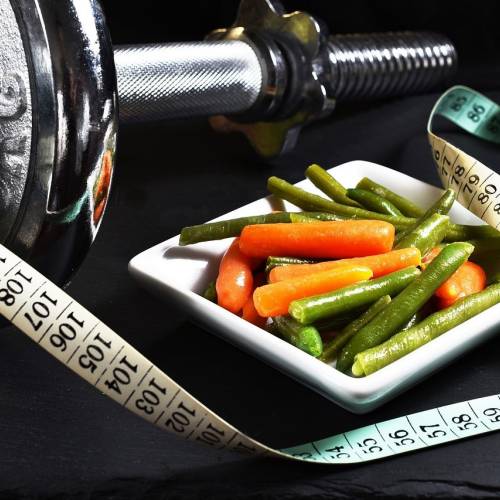Being overweight or obese increases your risk of having high blood pressure, heart disease and type 2 diabetes, which in turn, increase your risk of stroke. Healthy eating and exercise are the best ways to maintain a healthy weight.
With adults and children now spending more time than ever sitting at desks and on sofas – and consuming too many high-calorie foods – we all need to move more to burn off the excess calories.
-
Obesity is generally caused by consuming more calories, often contained in high-fat and sugar foods, than you burn off through physical activity. The excess energy is then stored by the body as fat.
There are also underlying health problems that can lead to obesity.
-
How much energy (calories) we need depends on our gender, age and how active we are.
- Women: The average woman (age 11 or over) needs 2,000 calories per day.
- Men: The average man (age 11 or over) needs 2,500 calories per day.
- Girls: (aged 5-10) need between 1,400-1,900 calories per day.
- Boys: (aged 5-10) need between 1,500-2,000 calories per day.
When we eat more than we need, our bodies store the excess as fat. We need to balance calories consumed with calories burned to maintain a healthy weight.
Find out what calories are, the recommended intake, why it can be useful to count calories and how doing so can help you lose weight on the NHS website.
-
We have different types of fat in our bodies, some of which we need to stay healthy. However, too much fat around your waist can increase your risk of becoming unwell.
Visceral fat surrounds our internal organs such as the heart and liver so if we have too much of it, then there’s a higher risk of health problems such as cardiovascular disease, diabetes and cancer.
Visceral fat can:
- Increase your blood pressure
- Raise your blood cholesterol
- Increase your risk of developing type 2 diabetes
All of these risk factors further increase your risk of heart disease, heart attacks and strokes.
-
Being overweight means your heart has to work to do everyday tasks and this leads to high blood pressure.
On top of this, the more fat you have in your body, the more fat you are likely to have in your bloodstream, which can lead to high cholesterol.
-
A woman’s waist measurement should not be more than 80cm (about 32 inches) and a man’s waist measurement should not be more than 94cm (37 inches).
How do you measure your waist measurement? Find a standard tape measure and follow these five simple steps:
- Find the top of your hip bone and the bottom of your ribs
- Place the tape measure midway between these points
- Stand up straight and breathe out naturally
- Keep the tape measure snug but not tight around your waist
- Write down the measurement
-
Maintaining a healthy weight is a combination of eating a healthy diet and being more physically active.
A healthy weight reduces your risk of chest, heart and circulatory diseases because it helps prevent and manage conditions like high cholesterol, high blood pressure, sleep apnoea and type 2 diabetes that put you at greater risk of developing heart disease or having a stroke.
Even if you don't have any of these conditions, it's important to keep to a healthy weight so you don't develop them in future. Simple lifestyle changes such as avoiding sugary or fatty foods, watching your portion sizes and doing some exercise every day can help you to achieve and maintain a healthy weight. And don’t forget that losing too much weight or being underweight is dangerous too – it can lead to an irregular heartbeat and can affect your heart muscle which can cause heart failure.
-
Think of losing weight as a marathon, not a sprint! Making drastic changes may help you to lose weight quickly but it can be difficult to stick to this in the long-term.
The best way to lose weight is at a rate of 1-2lbs each week. You need to make changes you can stick to in the long term. Be realistic. Remember you probably put on the extra weight over several months or even years, so don’t expect to lose it overnight.
- Start by looking at what you eat – keep a food diary and be honest.
- Plan your meals in advance and keep to a meal routine, which will help avoid unplanned meals and snacks.
- Watch your portion size.
- Eat slowly to allow your stomach time to realise it is full. It takes 20 mins for your stomach to register food.
- Snack on healthy foods like fruit and veg.
- Look at the labels. Check for hidden fat or sugar in the food you buy.
- Know when you are hungry. If you feel hungry, you might just be thirsty so drink some water, or distract yourself. You’ll feel hungrier while watching TV than if you’re busy.
For more information visit Choose To Live Better.
For more information and tips on managing your calorie consumption to lose weight, visit the NHS website.
Our Well Checks include a body composition check as well as a lifestyle assessment and give you the opportunity to speak to one of our qualified health promotion officers about any concerns you have around maintaining a healthy weight, and receive personalised tips and advice.

